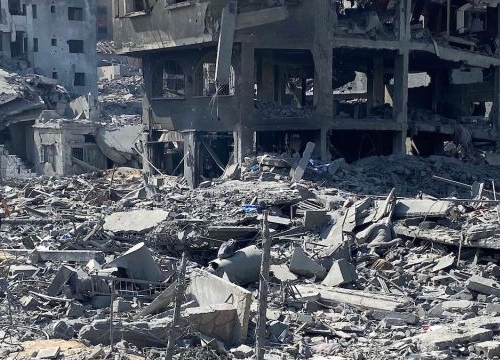Al-Aqsa Flood and Iron Sword: Legal and Humanitarian Challenges
Geneva Academy Talks


apaimages
The decades-long crisis in the Middle East has undergone a further escalation following the Al-Aqsa Flood attack conducted by Hamas and the Palestinian Islamic Jihad, and Israel’s subsequent Iron Sword operation. The unfolding tragedy poses significant challenges to our legal and humanitarian protection framework.
Although violence and conflicts are not new to this region, this IHL Talk will specifically delve into several aspects exacerbated by this cycle. It will address important IHL questions and related controversies – such as the classification of the situation, humanitarian access, rules on the conduct of hostilities, hostage taking, the specific protection of persons and objects –, accountability prospects before the International Criminal Court and challenges associated with evidence collection, alongside the ongoing humanitarian situation on the ground.
The ongoing conflict in Israel and Gaza and the related emerging mistrust – in the region and beyond – towards IHL also put to a test our international legal framework. Our panelists will scrutinize the immediate and lasting consequences of this trend and offer a realistic assessment of the extent to which IHL can provide protection in this specific context.
Moderation
- Eugénie Duss, Research Fellow, Geneva Academy
Panelists
- Eitan Diamond, Manager and Senior Legal Expert, Diakonia International Humanitarian Law Centre, Jerusalem (online)
- Shawan Jabarim, Director, Al-Haq (online)
- Chantal Meloni, Professor, Università degli Studi di Milano Statale
- Ido Rosenzweig, Director of Research, Minerva Center for the Rule of Law under Extreme Conditions, University of Haifa
About IHL Talks
The IHL Talks are a series of events, hosted by the Geneva Academy, on international humanitarian law and current humanitarian topics. Academic experts, practitioners, policymakers and journalists discuss burning humanitarian issues and their regulation under international law.
Drinks
This event will be followed by drinks.
Disclaimer
This event may be filmed, recorded and/or photographed on behalf of the Geneva Academy. The Geneva Academy may use these recordings and photographs for internal and external communications for information, teaching and research purposes, and/or promotion and illustration through its various media channels (website, social media, newsletters, annual report, etc.).
By participating in this event, you are agreeing to the possibility of appearing in the aforementioned films, recordings and photographs, and their subsequent use by the Geneva Academy.








